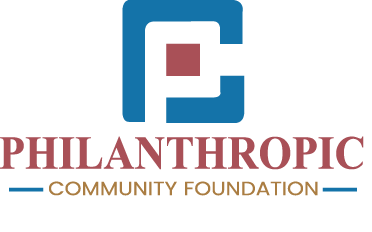Ecosystem for Philanthropy
- Home
- Ecosystem for Philanthropy
Ecosystem for Philanthropy
In an era where philanthropy plays a pivotal role in addressing complex global challenges, the Working Group on Fostering an Enabling Environment is dedicated to creating a supportive and vibrant ecosystem for charitable activities. By removing systemic barriers, fostering collaboration, and promoting innovation, we aim to empower philanthropists, non-profits, and communities to drive sustainable societal development.
Objectives
- Policy Advocacy
Influence and shape policies that create a favorable legal, regulatory, and fiscal environment for philanthropy. - Partnership Building
Encourage and facilitate partnerships between governmental bodies, private entities, and non-profits to drive collaborative impact. - Awareness and Visibility
Increase understanding and visibility of the role of philanthropy in addressing societal issues through targeted campaigns and outreach. - Best Practices
Identify, share, and promote best practices that enhance the efficiency, transparency, and impact of philanthropic activities. - Ethical Standards
Advocate for adherence to international standards and ethical practices in philanthropy. - Community Engagement
Encourage active community involvement in philanthropic initiatives and decision-making processes to ensure inclusivity and relevance.
Key Strategies for Strengthening the Philanthropic Ecosystem
To achieve our objectives, we have identified key strategies that address both immediate needs and long-term goals. These strategies are designed to foster an enabling environment where philanthropy can thrive.
1. Legislative & Regulatory Frameworks
- Action-Oriented Recommendations:
- Conduct research and provide actionable recommendations on laws that facilitate philanthropic giving, such as tax exemptions for donors and streamlined registration processes for nonprofits.
- Collaborate with policymakers to draft legislation that supports nonprofit sustainability, including provisions for endowments and legacy giving.
- Advocate for corporate social responsibility (CSR) mandates that incentivize businesses to partner with non-profits.
2. Capacity Building
for Philanthropic Organizations
- Action-Oriented Recommendations:
- Develop training modules focused on
governance, financial management, fundraising, and compliance to equip
nonprofits with essential skills. - Launch mentorship programs pairing emerging
leaders with seasoned professionals to foster leadership growth. - Create toolkits and step-by-step guides to
help organizations navigate regulatory frameworks, including grant
applications and reporting requirements.
- Develop training modules focused on
3. Technology and
Innovation in Philanthropy
- Action-Oriented Recommendations:
- Promote the adoption of digital tools like
CRM systems, donor management platforms, and AI-driven analytics to
enhance operational efficiency. - Support the integration of fintech solutions,
such as mobile payment systems and blockchain, to ensure secure,
transparent, and traceable transactions. - Establish online knowledge-sharing platforms where stakeholders can collaborate, share resources, and access real-time data on philanthropic trends.
- Promote the adoption of digital tools like
- Measuring Impact & Data-Driven Philanthropy
- Action-Oriented Recommendations:
- Develop standardized frameworks for monitoring and evaluating philanthropic initiatives, ensuring measurable outcomes and accountability.
- Encourage nonprofits to adopt data-sharing practices to identify successful interventions and replicate scalable models.
- Leverage AI and big data analytics to assess funding gaps, predict future needs, and optimize resource allocation.
- Sustainable Funding Models
- Action-Oriented Recommendations:
- Advocate for blended finance approaches that combine grants, loans, and investments to fund long-term projects.
- Explore social enterprise models that generate revenue while addressing social challenges, reducing reliance on traditional donations.
- Partner with banks and financial institutions to establish philanthropic funds or pooled financing mechanisms for community-driven initiatives.
- Strengthening Public Perception & Engagement
- Action-Oriented Recommendations:
- Launch educational campaigns highlighting the impact of philanthropy on critical issues like education, healthcare, and climate change.
- Organize town halls, forums, and roundtables to engage citizens in discussions about the role of philanthropy in their communities.
- Use storytelling and multimedia content (e.g., videos, podcasts, infographics) on social media to showcase success stories and inspire participation.
- Regional & International Collaboration
- Action-Oriented Recommendations:
- Facilitate cross-border partnerships to tackle shared challenges, such as poverty alleviation, disaster relief, and climate resilience.
- Align initiatives with the United Nations Sustainable Development Goals (SDGs) to attract global investments and partnerships.
- Establish exchange programs where organizations from different regions can share insights, tools, and best practices to strengthen their operations.
Criteria for Joining
We welcome individuals and organizations with the following qualifications:
- Experience: Proven expertise in philanthropy, policy-making, law, non-profit management, or related fields.
- Advocacy Skills: Ability to influence policy changes and engage effectively in decision-making processes.
- Collaborative Track Record: History of successful collaboration within the philanthropic sector or across sectors.
- Awareness Commitment: Experience or dedication to promoting awareness about the importance of philanthropy.
- Ethical Commitment: Strong adherence to ethical practices and transparency in all philanthropic endeavors.
Stay Connected
Follow us on social media and visit our website to stay updated on our initiatives, events, and opportunities to get involved:
- Twitter: @Philcomfoundation
- LinkedIn: Philcomfoundation
- Facebook: Philcomfoundation
- Instagram: @Philcomfoundation
- Website: www.philcomfoundation.org

